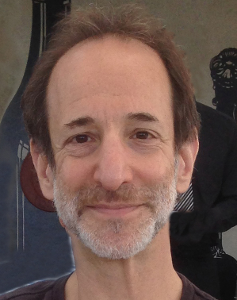
- This event has passed.
Steven Frank (Univ. of California Irvine, USA) (Zoom only), Robustness and complexity: how evolution builds precise traits from sloppy components
3 April 2023 | 17 h 00 min - 18 h 30 min

Steven Frank is Donald Bren Professor & Distinguished Professor, Ecology & Evolutionary Biology
School of Biological Sciences at University of California Irvine (USA)
His main research interests concern evolutionary genetics and host-parasite interactions.
URL: stevefrank.org
Video of the talk:
Academic Distinctions
Fellow, American Academy of Arts and Sciences, Elected 2012
Fellow, American Association for the Advancement of Science, Elected 2009
John Simon Guggenheim Fellowship, 1995
Theodosius Dobzhansky Prize, Society for the Study of Evolution, 1988
Young Investigator Prize, American Society of Naturalists, 1986
Abstract:
The first part of the talk describes the paradox of robustness. When a system robustly corrects errors in its components, the direct selective pressure on those components declines. Weakened selection on components causes them to become less reliable, maintain more genetic variability, or change in design. Loosened constraint on component-level design allows complexity to creep in arbitrarily, without natural selection to remove unnecessary elaboration. New forms of organismal complexity appear, seemingly without any clear logic. In the second part, I link the paradox of robustness to similar ideas developed by others, such as the theory of constructive neutral evolution. In the third part, I unify previous ideas into a more general perspective. I then link the paradox of robustness to the observation that, in evolution, intermediate stages in development tend to be more strongly constrained than earlier or later stages. This leads us to John Doyle’s discussion of the universal architecture of complex robustly designed systems in engineering and in biology, in which there is an important distinction between hardware and software layers. I link the observations about evolutionary constraints in development to Doyle’s hardware vs software distinction. Finally, I argue that constructive neutral evolution is mainly about genomic hardware, in which neutrality likely dominates, whereas the broader paradox of robustness also includes functional components in the software layer, in which nonneutral economic costs and benefits likely dominate.
This talk will be given via Zoom. Please contact Thomas Pradeu if you’d like to join us for this seminar.
